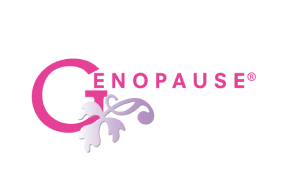VASO6® is a highly effective, clinically researched compound derived from green tea. It is known for its exceptional ability to...

WOMEN’S HEALTH
WOMEN’S HEALTH
It encompasses all aspects of a woman’s physical, mental, and emotional well-being, which includes everything from reproductive to mental health to overall wellness.
Ingredients
Specialty
Ingredients
Specialty Ingredients
Goal OVERVIEW
Women’s health is a broad term that encompasses all aspects of a woman’s physical, mental, and emotional well-being which includes everything from reproductive to mental health to overall wellness. As women often juggle multiple roles in their personal and professional lives, recognizing and addressing the importance of mental health becomes paramount. Prioritizing mental wellness is about managing disorders and enhancing a woman’s overall quality of life.
What You Should Know
The Silent Influence of Hormonal Balance on Women’s Health
While not always at the forefront of conversations, hormonal balance plays a pivotal role in every aspect of women’s health. These natural chemicals orchestrate myriad processes, from mood regulation and metabolic rate to reproductive functions and even skin health.
An imbalance, whether due to lifestyle, genetics, or external factors, can lead to conditions like polycystic ovary syndrome (PCOS), thyroid disorders, mood swings, and fatigue. As women set health goals, understanding and prioritizing hormonal health is paramount. Addressing it is not just about symptom relief; it’s about harmonizing the body’s inner symphony for optimal well-being.
FOOD FOR THOUGHT
The Impact of Mental Well-being on Women’s Health
Mental well-being is crucial to a woman’s overall health, shaping her ability to function, maintain relationships, and engage in society. Specifically, anxiety, a prevalent concern among women, can influence the mind and body. Prolonged anxiety can lead to physical symptoms, disrupt sleep patterns, affect nutritional choices, and even impact reproductive health. As women often juggle multiple roles in their personal and professional lives, recognizing and addressing the importance of mental health becomes paramount. Prioritizing mental wellness is about managing disorders and enhancing a woman’s overall quality of life.

SHAGANDHA® BY SABINSA
Shagandha® is a standardized powdered extract from the roots of Withania somnifera, commonly known as ashwagandha. Shagandha® offers various health benefits, including reducing stress, anxiety, and insomnia while improving cognitive function, reducing inflammation, and boosting the immune system. It is available in capsules, powders, and teas and is often used in herbal mixtures. Considered to be a breakthrough Adaptogenic.
Sponsored Content
FAQ
Women can experience a wide range of health issues throughout their lives. Some of the most common health problems experienced by women include:
1. Reproductive Health Issues:
- Menstrual Irregularities: Conditions like irregular periods, heavy bleeding, or painful periods can affect women’s reproductive health.
- Polycystic Ovary Syndrome (PCOS): A hormonal disorder that can lead to irregular periods, ovarian cysts, and other symptoms.
- Endometriosis: A condition where tissue similar to the lining of the uterus grows outside the uterus, leading to pain and fertility issues.
- Fibroids: Noncancerous growths in the uterus that can cause pain and heavy bleeding.
2. Breast Health:
- Breast Cancer: One of the most common cancers among women, with early detection and regular screenings being crucial for early intervention.
- Breast Health Issues: Non-cancerous conditions like fibrocystic breast changes or benign breast lumps can also affect breast health.
3. Osteoporosis and Bone Health:
- Osteoporosis: A condition characterized by weakened bones, making them more prone to fractures.
4. Cardiovascular Health:
- Heart Disease: A leading cause of death among women, with risk factors including high blood pressure, high cholesterol, diabetes, and smoking.
5. Mental Health Issues:
- Depression and Anxiety: Women are likelier to experience depression and anxiety disorders than men.
- Eating Disorders: Conditions like anorexia nervosa and bulimia disproportionately affect women.
6. Autoimmune Diseases:
- Conditions like rheumatoid arthritis, lupus, and multiple sclerosis are more common in women and involve the immune system attacking healthy cells.
7. Thyroid Disorders:
- Hypothyroidism (underactive thyroid) and hyperthyroidism (overactive thyroid) can affect energy levels, metabolism, and overall health.
8. Urinary Tract Infections (UTIs):
- UTIs are more common in women due to their shorter urethra, which makes it easier for bacteria to reach the bladder.
9. Sexual and Reproductive Health:
- Sexual Dysfunction: Issues related to sexual desire, arousal, and satisfaction.
- Pelvic Floor Disorders: Conditions like urinary incontinence and pelvic organ prolapse can affect women’s quality of life.
10. Cervical and Ovarian Health:
- Cervical Cancer: Regular screenings and vaccinations against human papillomavirus (HPV) help prevent cervical cancer.
- Ovarian Cysts and Ovarian Cancer: Conditions affecting the ovaries that may require medical attention.
11. Menopause and Perimenopause:
- Women experience hormonal changes during perimenopause and menopause, leading to various symptoms and health considerations.
12. Pregnancy-Related Health Concerns:
- Pregnancy-related issues such as gestational diabetes, preeclampsia, and postpartum depression can impact women’s health.
Women must prioritize regular check-ups, screenings, and maintaining a healthy lifestyle to prevent and manage these health issues. Additionally, individual experiences may vary, so it’s essential to consult with healthcare professionals for personalized guidance and recommendations based on your specific health needs.
There are several supplements that women might consider incorporating into their routine to support overall health, especially in cases where certain nutrients may be lacking from the diet or to address specific health concerns. However, it’s important to note that individual needs vary, and it’s advisable to consult with a healthcare professional before starting any new supplement regimen.
Here are a few supplements that women may consider:
1. Multivitamins and Minerals:
- A high-quality multivitamin can help fill potential nutrient gaps in the diet, providing essential vitamins and minerals such as vitamin D, calcium, magnesium, and iron. Look for a multivitamin designed specifically for women’s health.
2. Calcium and Vitamin D:
- Calcium and vitamin D are crucial for bone health and may be especially important for women to prevent osteoporosis.
3. Omega-3 Fatty Acids:
- Omega-3 fatty acids, found in fish oil supplements, have anti-inflammatory properties and support heart and brain health.
4. Iron:
- Iron supplements may be necessary for women with low iron levels or those with heavy menstrual bleeding to prevent iron deficiency anemia.
5. Folate or Folic Acid:
- Folate is essential for women of childbearing age to support fetal development during pregnancy. Folic acid supplementation is recommended before and during pregnancy.
6. B Vitamins:
- B vitamins, including B6, B12, and folate, affect energy metabolism and overall well-being.
7. Probiotics:
- Probiotics support gut health, which can impact digestion, immune function, and overall wellness.
8. Collagen:
- Collagen supplements may promote healthy skin, hair, nails, and joint health.
9. Vitamin C:
- Vitamin C is an antioxidant that supports immune function, collagen synthesis, and overall health.
10. Magnesium:
- Magnesium is essential for muscle and nerve function, bone health, and energy production.
11. Evening Primrose Oil:
- Evening primrose oil contains gamma-linolenic acid (GLA), which may help alleviate symptoms of premenstrual syndrome (PMS).
12. Adaptogens:
- Adaptogenic herbs like ashwagandha, rhodiola, and holy basil help the body manage stress and balance hormones.
Remember that supplements should complement a well-balanced diet and a healthy lifestyle. They are not meant to replace proper nutrition or medical treatment. Consulting with a healthcare professional before adding any new supplements to your routine is crucial to ensure they are safe and appropriate for your health needs. Additionally, choose supplements from reputable brands that undergo third-party testing for quality and purity.
Menopause, a natural process marking the end of a woman’s reproductive years, usually occurs between ages 45 and 55. This transition, known as perimenopause, brings signs like irregular menstrual cycles, hot flashes, night sweats, vaginal dryness, mood changes, sleep disturbances, decreased libido, and changes in skin, hair, and bone health.
Managing menopause symptoms without medication is possible through lifestyle and holistic approaches. A healthy diet, regular exercise, stress reduction techniques, and adequate sleep can alleviate discomfort. Herbal supplements, mind-body techniques, hydration, supportive clothing, vaginal lubricants, and support groups are additional drug-free options. Since menopause is a unique experience for each woman, consulting a healthcare professional is advisable if severe symptoms impact quality of life. A balanced approach that combines healthy habits with professional guidance can effectively manage menopause symptoms naturally and personally.
Related Videos
Articles
AMINO9® is a cutting-edge blend of nine essential amino acids (EAAs) meticulously designed to support muscle growth and recovery. This...
Carnosyn: A great thing got even better!Carnosyn® is a renowned branded form of beta-alanine, an amino acid that is not...

















